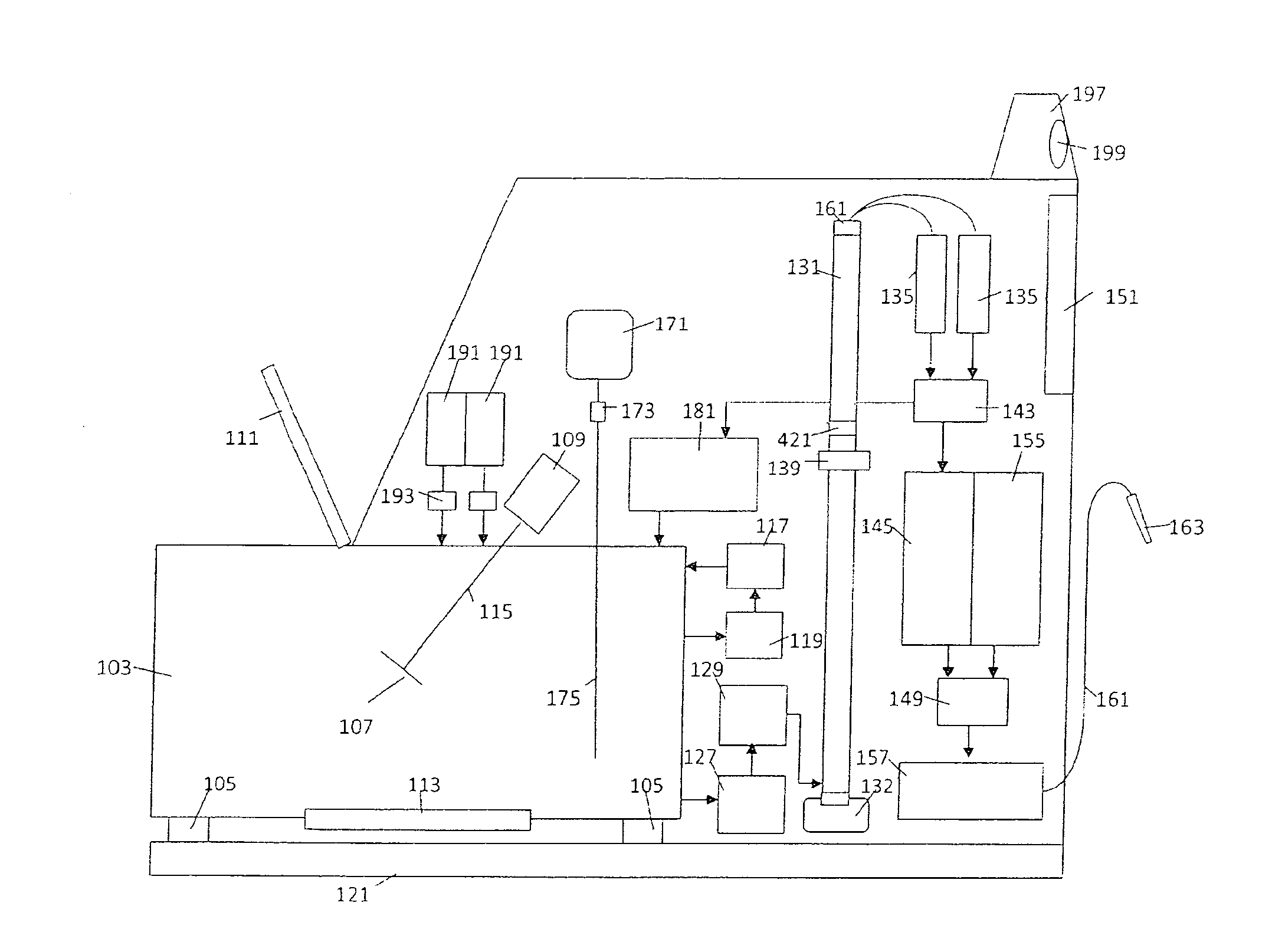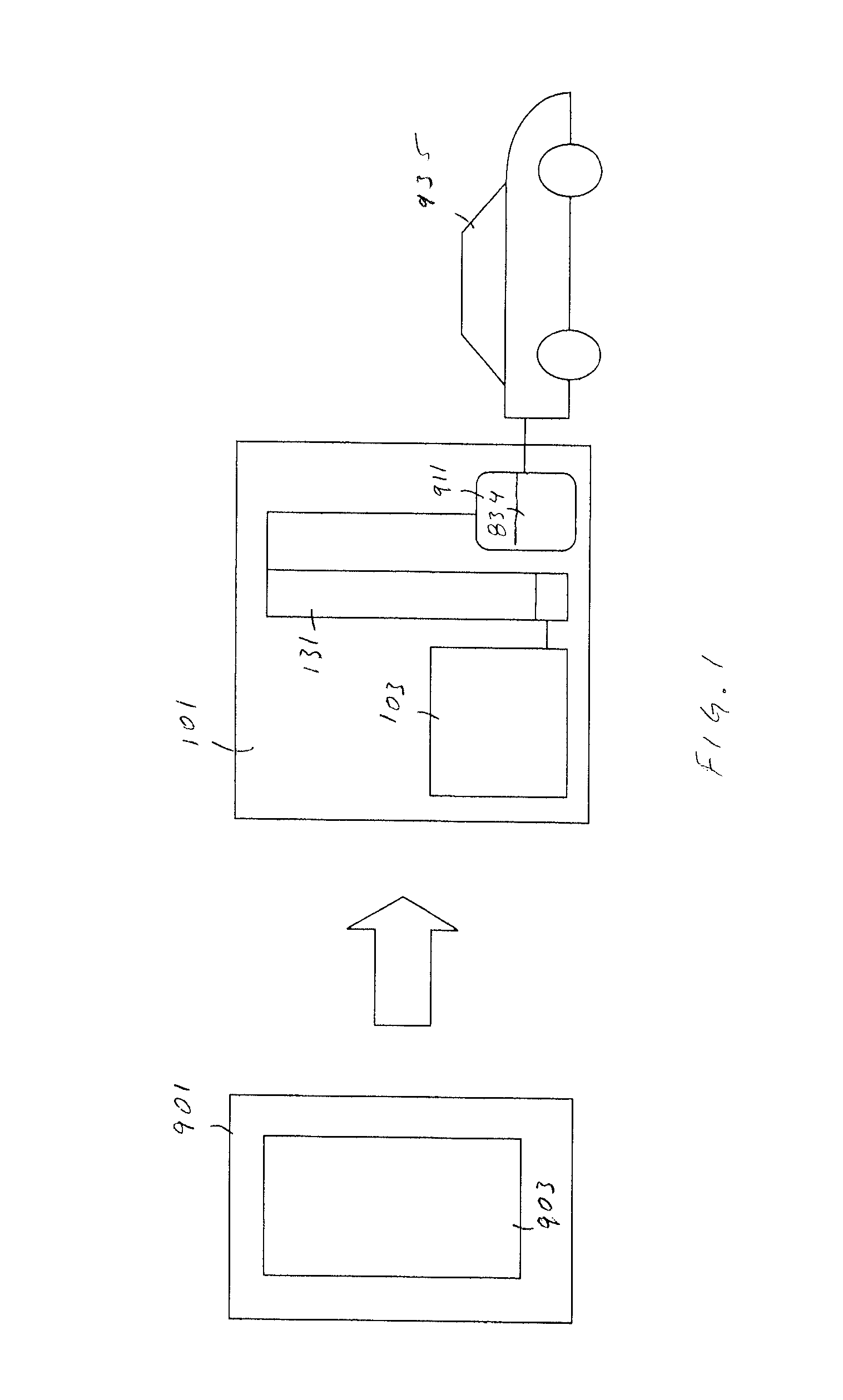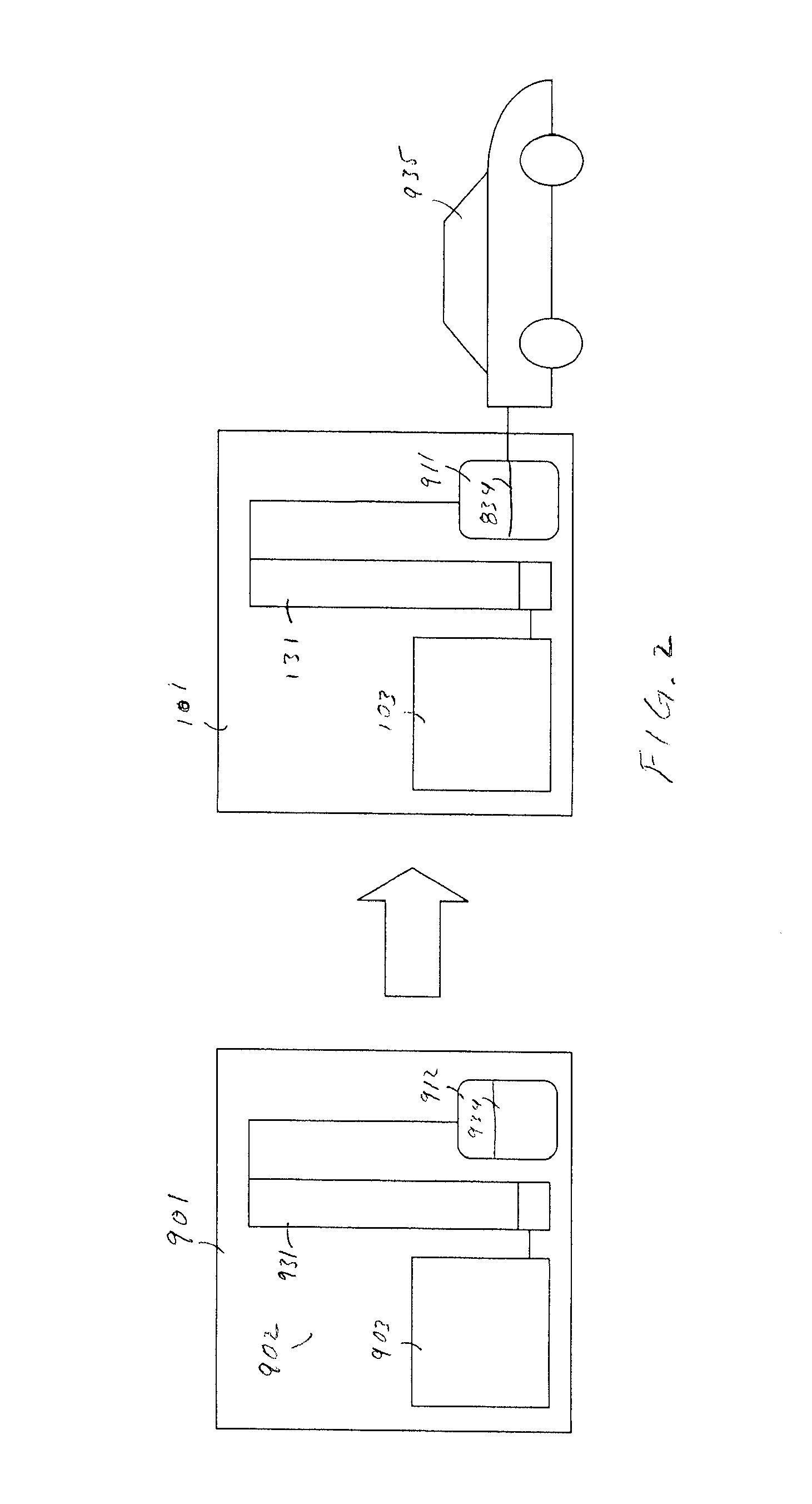Enhanced feedstock for use with micro-refineries
a technology for enriching feedstock and micro-refineries, which is applied in specific use bioreactors/fermenters, biomass after-treatment, biochemical apparatus and processes, etc. it can solve the problems of not being able to efficiently use energy or distillation equipment, transportation costs are major, and the fermentation process is not a rapid process, so as to improve the efficiency of micro-refineries, the effect of reducing the time and enhancing the feedstock
- Summary
- Abstract
- Description
- Claims
- Application Information
AI Technical Summary
Benefits of technology
Problems solved by technology
Method used
Image
Examples
Embodiment Construction
[0011]The present invention is directed towards a system for producing and distributing enhanced feedstock for micro-refineries that produce ethanol. With reference to FIG. 1, a distributor 901 provides feedstock which is transported to a micro-refinery 101. The feedstock can be mixed with water, yeast, sugar and other components in a fermentation tank 103 of the micro-refinery. Fluid mixture can ferment for several days in a fermentation tank 103. After fermentation, the liquid is distilled in a distillation tube 131 and filters to separate the ethanol from water and other contaminates. The ethanol 834 can be stored in a storage tank 911 before being pumped into an internal combustion vehicle 935. This process can be time consuming because of time delays due to the fermentation process.
[0012]In another embodiment, the distributor 901 can have a fermentation tank 903 that pre-ferments the feedstock to 30 proof. The pre-fermented feedstock can be placed in the micro-refinery 101 and ...
PUM
| Property | Measurement | Unit |
|---|---|---|
| time | aaaaa | aaaaa |
| energy | aaaaa | aaaaa |
| total distillation energy | aaaaa | aaaaa |
Abstract
Description
Claims
Application Information
 Login to View More
Login to View More - R&D
- Intellectual Property
- Life Sciences
- Materials
- Tech Scout
- Unparalleled Data Quality
- Higher Quality Content
- 60% Fewer Hallucinations
Browse by: Latest US Patents, China's latest patents, Technical Efficacy Thesaurus, Application Domain, Technology Topic, Popular Technical Reports.
© 2025 PatSnap. All rights reserved.Legal|Privacy policy|Modern Slavery Act Transparency Statement|Sitemap|About US| Contact US: help@patsnap.com



